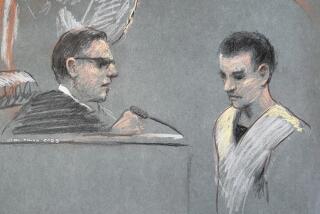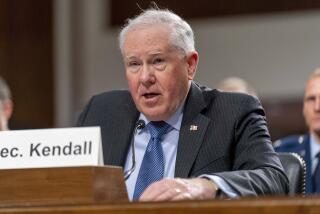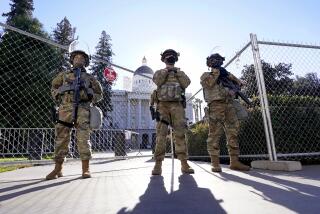‘Abuse of Authority’ Cited in McDonnell Bailout : Defense: Air Force officials allegedly diverted at least $450 million in public funds to the troubled C-17 cargo jet program, inspector general finds.
- Share via
A cabal of Air Force generals and senior civilians used their influence and position to secretly bail out McDonnell Douglas in 1990 at a time when the firm appeared it might run out of cash, according to a Pentagon inspector general report issued Tuesday.
Although the report’s broad conclusions were disclosed last week, the full 100-page report alleges that the high-level officials circumvented government regulations through an “abuse of authority” and improperly funneled at least $450 million to the company’s troubled C-17 cargo jet program.
Rep. John Conyers (D-Mich.), who asked for the inspector general’s investigation, called Tuesday for Defense Secretary Les Aspin to suspend McDonnell’s C-17 cargo jet program until the “true status” of the firm’s contracts can be determined.
Conyers called a hearing before his House Government Operations Committee for March 17, in which senior Pentagon and Air Force leaders are expected to respond to the allegations that they diverted the public funds to McDonnell to prevent a financial collapse of the firm in late 1990.
A McDonnell Douglas spokesman said the Air Force needs the C-17 for future transport capability and the company sees no reason to impose a suspension on the program. He reiterated past statements that the company acted properly under government regulations.
Conyers, along with Rep. John Dingell (D-Mich.), also asked that the Securities and Exchange Commission investigate whether McDonnell filed misleading or untrue reports about the firm’s financial condition in 1990.
The inspector general found the officials also tried to “create an appearance of propriety for their actions and plausible deniability for any accountability on their part.” The report faults Assistant Air Force Secretary John Welch Jr., Brig. Gen. Michael Buchko, Brig. Gen. John Nauseef and Lt. Gen. Edward P. Berry Jr.
An Air Force spokesman declined to respond to specific allegations in the report, but said the service is working with the Defense Department to start an independent review of the allegations.
The spokesman said the service is hoping to complete the review within 30 to 60 days, so that a final report would be available before Conyers holds his hearing in March.
The McDonnell spokesman said the company “properly disclosed” its financial information to the SEC.
He reiterated a past statement that McDonnell properly submitted bills for the work performed in accordance with agreements with the Air Force and Department of Defense accounting rules.
But the inspector general alleged that the officials made $349 million in inappropriate payments and an additional $92 million for work that had not been completed. In addition, “improper contracting actions” reduced McDonnell’s financial risk by $1.6 billion by declaring that the first C-17 aircraft was completed, even though it required months of additional work.
That action “created a false appearance of success to facilitate both the contractor obtaining financing through commercial sources and issuance of debt securities, and the Air Force securing additional funding from Congress,” the report says.
The report singles out Nauseef for attempting to “intimidate” lower-ranking officers to keep the cash flowing to McDonnell. At one point, Nauseef told a lower-ranking official to leave a meeting if he was not a “team player,” it says.
Although McDonnell was supposed to be paid for its C-17 work on the basis of regular cost estimates, the Air Force created a monthly cost estimating system that portrayed an unrealistically optimistic picture of the program and temporarily allowed higher cash payments.
But the report says the monthly estimates “provided no real basis for performance . . . and was merely a spending plan.”
More to Read
Sign up for Essential California
The most important California stories and recommendations in your inbox every morning.
You may occasionally receive promotional content from the Los Angeles Times.














